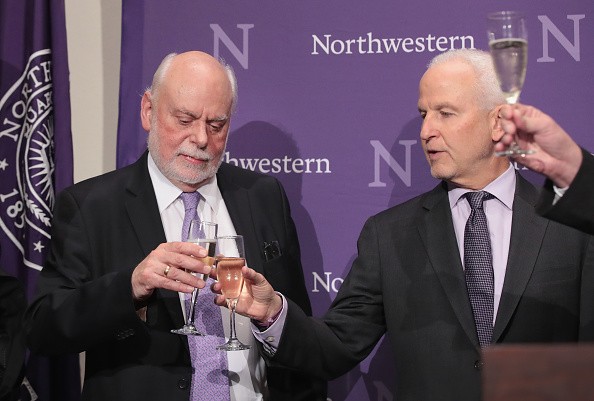At a recent press conference in Sweden, three scientists were felicitated for their outstanding contribution to the field of chemistry, earning them a cash prize of 8m kronor ($930,000) and 2016 Nobel Prize.
The three celebrated scientists, Jean-Pierre Sauvage from France, Sir Fraser Stoddart from Scotland, and Bernard Feringa from Netherlands, made headlines when they won the 2016 Nobel Prize in Chemistry for building the smallest machines in the world that are 1000 times slimmer than a hair strand, BBC News reported. Molecular will be useful in the development of new materials, sensors and more, said Royal Swedish Academy of Sciences.
The trio was the first ones to emulate the existing work of molecular mechanics present in living organisms into synthetic molecules, converting the chemical energy present in these molecules into mechanical motion.
Nature has built living organisms in such a way that the molecular machinery present in their systems transport materials around cells, divide cells and develop protein. The artificial molecular machines may still be at the nascent stage but can prove very useful in the future.
These machines can act as microbots that can be injected into a person's body to locate the cancel cells or deliver drugs to a specific part of the body, said Dr. Feringa over a telephonic interview from Sweden. Based on this technology, the scientists will be able to create materials that are capable of adapting themselves to their environment, according to The Guardian.
The trio's breakthrough in this field was compared by the Nobel committee to the development of first crude electric motor in 1830. The scientists back then were unaware that their invention of wheels and spinning cranks will give birth to present day machines such as food processors, electric trains, washing machines etc.



























